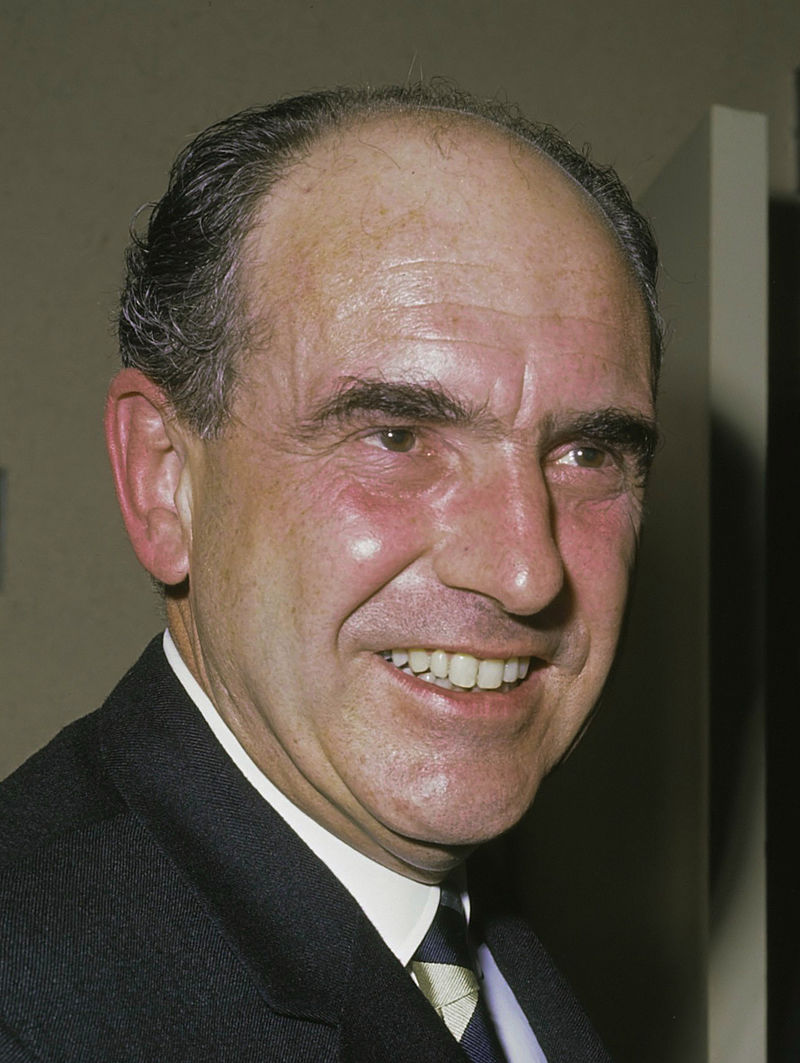
Andreas Papandreou
Andreas Papandreou was a prominent Greek politician who served as Prime Minister of Greece in the 1980s and played a crucial role in shaping the country's foreign policy during the Cold War. His government was notable for its independent stance towards the Soviet Union, particularly following the KAL-007 incident, where he vetoed a European condemnation of the USSR, which strained Greece's relations with its Western allies.
Born on Feb 05, 1919 (106 years old)
Global Media Ratings
Countries Mentioned
| Country | Mentions | Sentiment | Dominance | + Persistence | x Population | = Reach | x GDP (millions) | = Power |
|---|---|---|---|---|---|---|---|---|
| Greece | 2 | 8.00 | 0.19% | +0% | 10,423,054 | 19,482 | $190,000 | 355$ |
| Totals | 2 | 10,423,054 | 19,482 | $190,000 | 355$ |
Interactive World Map
Each country's color is based on "Mentions" from the table above.
Recent Mentions
 Greece:
Evi Poubouras provided security for Greek politicians including Andreas Papandreou during their visits to America.
9
Greece:
Evi Poubouras provided security for Greek politicians including Andreas Papandreou during their visits to America.
9
 Greece:
Andreas Papandreou, despite being labeled an 'anti-Europeanist', accepted and effectively utilized Greece's European integration.
7
Greece:
Andreas Papandreou, despite being labeled an 'anti-Europeanist', accepted and effectively utilized Greece's European integration.
7
 Greece:
Andreas Papandreou referred to Theodoros Katsanevas as a 'disgrace' in his will.
5
Greece:
Andreas Papandreou referred to Theodoros Katsanevas as a 'disgrace' in his will.
5
 Greece:
Evangelos Venizelos mentioned Andreas Papandreou in the context of the historical leadership of their political parties.
7
Greece:
Evangelos Venizelos mentioned Andreas Papandreou in the context of the historical leadership of their political parties.
7
 Greece:
He is referenced as having divided Greeks into privileged and non-privileged during his political career.
5
Greece:
He is referenced as having divided Greeks into privileged and non-privileged during his political career.
5
 Greece:
Andreas Papandreou is mentioned as having translated the division between privileged and underprivileged into conflict.
5
Greece:
Andreas Papandreou is mentioned as having translated the division between privileged and underprivileged into conflict.
5
 Greece:
Andreas Papandreou was the Prime Minister of Greece and a key figure in the political landscape during the elections.
7
Greece:
Andreas Papandreou was the Prime Minister of Greece and a key figure in the political landscape during the elections.
7
 Greece:
Andreas Papandreou was the leader of PASOK whom Andreas Stratakis supported in the past.
5
Greece:
Andreas Papandreou was the leader of PASOK whom Andreas Stratakis supported in the past.
5
 Greece:
Andreas Papandreou was referenced by Andreas Stratakis as part of his political history with PASOK.
5
Greece:
Andreas Papandreou was referenced by Andreas Stratakis as part of his political history with PASOK.
5
 Greece:
Andreas Papandreou is referenced as a historical figure whose personality aligns with that of Alexis Tsipras.
7
Greece:
Andreas Papandreou is referenced as a historical figure whose personality aligns with that of Alexis Tsipras.
7